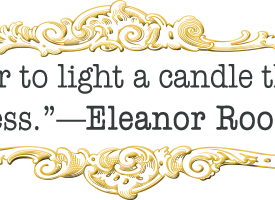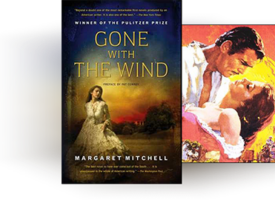Professionals often reassure new writers that publishers do not steal your ideas when you query them.
Perhaps one ought to qualify that: Legitimate publishers won’t steal your ideas, because it is easier for them to give you an assignment than to find a writer to duplicate research you’ve already done and then write it (that’s assuming you can write. This entire article is premised on the idea that you can write).
I was chatting with someone who had posted a piece on how to get over your shyness so that you can discuss your current writing project with someone you might meet at a writers’ conference. I mentioned that if asked by another attendee what I’m working on now, I’d politely deflect the question. She took umbrage, saying one should be more friendly and open. I think it depends on the circumstances.
What circumstances? Think about it.
WRITING UNDER CONTRACT
If you have a book under contract and about to be published, go ahead and discuss it—it’s good publicity. The same applies to an accepted and scheduled article for a magazine, or even an assignment that’s under contract and due any day. If you have a book under contract but it isn’t written yet, it probably doesn’t hurt to discuss the general topic—and name the publisher—and reveal whatever its publication date might be.
WRITING ON SPEC
But if you are writing a book on spec, or if you’re just at the query stage for an article or the proposal stage for the book, it probably isn’t the best idea to talk about it outside of your inner circle. What about your two hundred “friends” on Facebook? Or in a support group on LinkedIn? Maybe not so much.
This is especially the case if you are working on a book, since a book tends to be a long-term project. You may be planning to take your time with it, but what if your new best friend has connections in the publishing industry and decides to run with your idea? Or chooses to knock out an e-book on the same subject? What if your listener has an “in” at a national magazine, and pitches the idea there? These are things that might make a publisher think twice about buying a book or article on that subject (and with that angle) from you.
The U.S. Copyright Law is clear that there is no copyright in an idea (or in a short phrase). Copyright exists only in the way you have expressed that idea—in the writing itself. And if you haven’t written the piece yet, the written words don’t exist; until words are fixed in a tangible medium of expression from which they can be read back, there is nothing copyrightable to infringe.
In her book, Shut Up And Write, Judy Bridges—who runs writing workshops in Wisconsin under that name—makes the point that talking about your book doesn’t get it
written. But her title could just as easily be a variation on the old World War II poster that read, “Loose Lips Sink Ships.” Talk too much about your idea to a bunch of people you don’t know—in person or, worse, on line (where it can go viral)—and someone else might well get to a publisher with it before you do.
Of course, legitimate publishers don’t steal your ideas. But fly-by-night publishers who crop up overnight and disappear just as quickly, just might. And people you don’t know, on the Internet or in the bar at a writers’ conference, might decide they could do a better job, and more quickly, than you can with the idea you’re describing in such detail.
And you wouldn’t have a leg to stand on—at least, not a copyright leg. (There might be some unjust enrichment arguments to be made, but they’d be really hard to prove.)
WHOM TO TRUST
The point here is that there are people to whom you must reveal the details of your proposed book or article. These would be prospective agents and publishers. And if you’ve researched them and they look legitimate, go ahead and pitch them or send them your proposal. When you do so, your written query letter or (in the proposal) your sample chapters, will probably constitute enough material to establish some copyright ownership. After all, with your query or proposal, you’ll be submitting your credentials for writing the piece, and hopefully those credentials will tell them that you are better suited to writing the piece than any other writer might be.
But what good does it do you to tell the details of your project to the person sitting next to you at dinner, a person you have never met before, and may never see again? And why would you spread the idea all over the internet just because other writers are sharing theirs? The odds that someone could be inspired to write on the same subject are a
lot greater than the odds of some editor or publisher scanning the website and being so taken by your idea that they contact you to offer you a contract.
So this is your reality check
Legitimate publishers don’t steal your ideas. (That’s not to say it has never happened, but generally they have better things to do, and would rather give you the assignment.) But vulture publishers, or wannabe writers who think they
can run with your idea, are something else altogether.
Unless your piece is scheduled for next week’s New Yorker, or your book is ready to go to press, perhaps the best answer to a stranger who asks “What are you working on now?” is a polite deflection: “It’s a romance set in World War II,” or “It’s a multi-generational family saga set in the old West,” or “It’s a family cookbook.” Then turn around and ask them what they’re currently writing. Chances are, they were just asking so you’d ask them anyway
About the author:
Ellen M. Kozak is a copyright, publishing and media attorney who is also an author in her own right. Her books include three editions of Every Writer’s Guide to Copyright and Publishing Law and the prize-winning From Pen to Print: The Secrets of Getting Published Successfully (both from Henry Holt/MacMillan). She can be reached at [email protected]
Also by Ellen M. Kozak:
1. The Option Clause in a Book Contract: A Trap for the Unwary Author (article)



